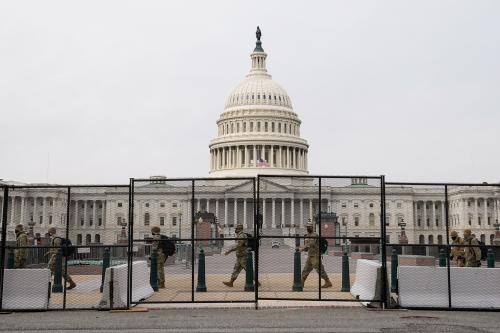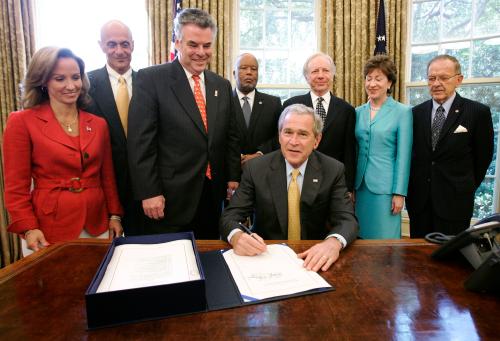Bob Edwards: As part of the war on terrorism, President
Bush has established the Office of Homeland Security and
he picked Pennsylvania Governor Tom Ridge to lead the
effort, however the powers and resources of the cabinet level
office have yet to be defined. Paul light is Senior Adviser of
the Presidential Appointee Initiative at the Brookings
Institution. He says one of the first challenges that Ridge
faces is getting dozens of federal agencies to work together.
Paul Light: It’s the hardest job in Washington, and we do it a number of
different ways, and we’re almost always frustrated when we try to coordinate
agencies. You take a guy like Tom Ridge who’s strong, a person of great
character, and he’s going to find it very difficult to get people to come together
and work together. He has the ear of the president, but it’s not necessarily clear
that he will have the ear of the participating agencies.
Edwards: So you tell them that there’s some urgency for them to cooperate
that wasn’t there before and that will make it happen?
Light: There are only two things in town that really matter: money and people.
If Ridge has no money to give and no staff positions to allot, he will get the
meetings convened and people will say the right things, but when they go back
to their homes, they’ll put on their old hats and they’ll continue doing what they
were doing. They will say the right things and they will try to cooperate, but at
some point Ridge needs the power to force them to work together; that includes
sticks as well as carrots. He has no carrots, and the one stick he has is in the
White House. We have to look for certain signals, therefore, to see how much
of a stick he gets in this process.
listen to complete interview (Real Player 4:46 min.)



Commentary
The Bureaucratic Challenges Facing the New Homeland Security Agency
October 2, 2001